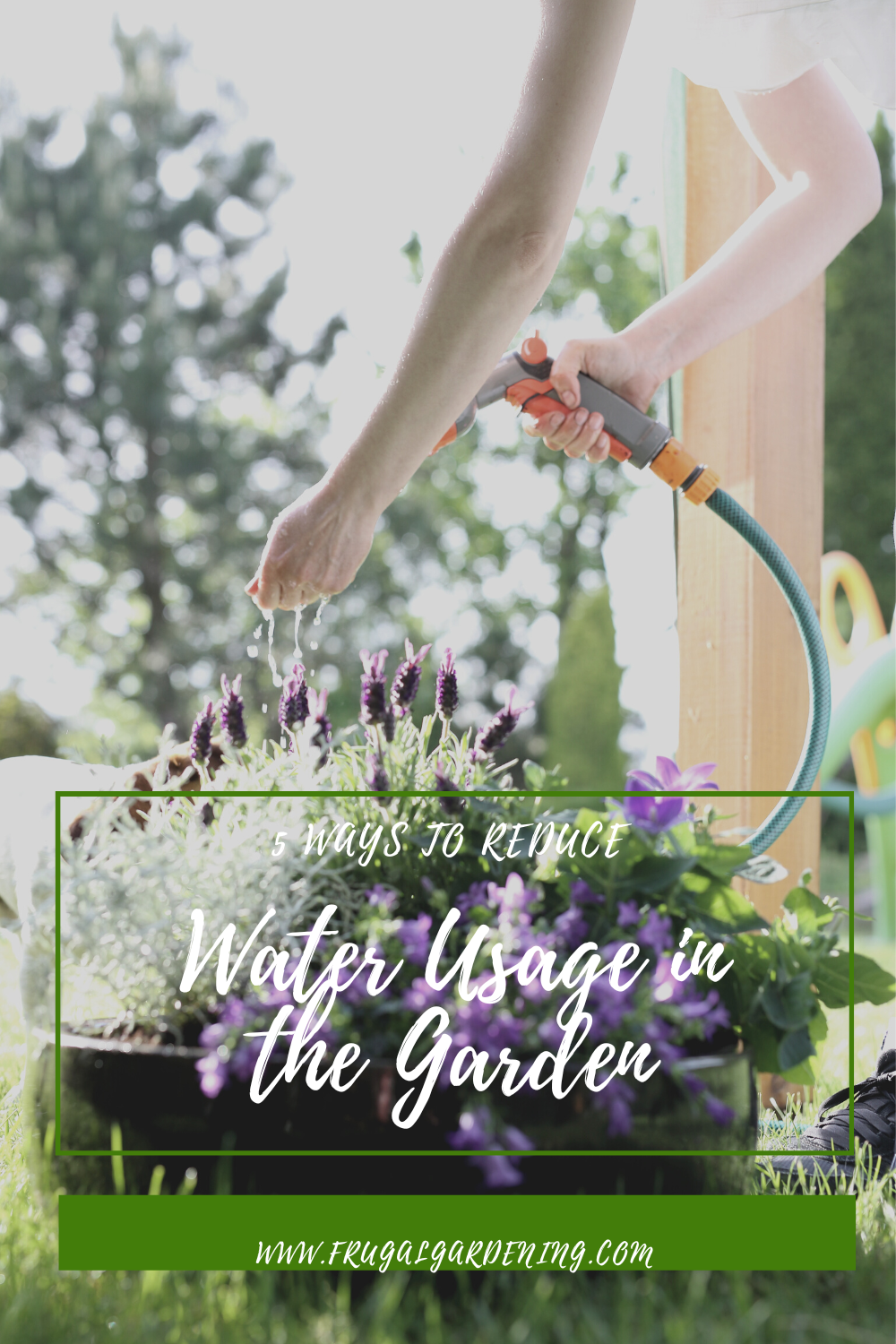
Reducing your water usage in your garden is almost always a positive thing.
It will lower your water bill and produce healthier plants.
Why Reduce Your Water Usage in Your Garden?
Overwatering is a common mistake among gardeners. However, the truth is that plants have adapted to require less water than most people assume.
And when you reduce your water usage, you will find your soil and plants are healthier.
Signs of Overwatering
One of the most obvious signs that you are overwatering your garden is standing water or puddles. If you’ve noticed this in your garden, it’s time to take a closer look at your watering habits.
Check these other signs that you’re giving your plants too much water.
Split Fruit
If you pick a lot of split fruit, you are probably overwatering. This is very common with things like tomatoes.
Soft and Rotting Stems
When a plant absorbs too much water, this can cause damage to the parts of the plant cells that help support it and keep its shape. This causes the plant stems to become soft and start to rot.
Root Rot
This degradation of the roots is caused by fungal or bacterial infections that thrive in wet soil.
Changes in Leaves
Sometimes the plants will drop leaves to signal a problem like overwatering. The fallen leaves can be green, brown, or yellow.
Another sign of watering is brown spots on the edges of leaves, which can be an infection of the leave.
Fungus
Fungus appears as white or gray patches of powdery or hair-like structures stretching across the dirt around the plants. Sometimes, it can be on the plant, like powdery mildew.
How to Reduce Your Water Usage in the Garden
There are thousands of ideas for reducing water usage in the garden, but here are a few low-cost, easy-to-implement suggestions.
Mulch
Adding some kind of mulch will keep the ground cooler and reduce water loss due to evaporation.
There are tons of mulch available commercially. If you buy commercial, just make sure to buy some that are safe for vegetable gardens.
But if you don’t want to buy commercial mulch, you can also use compost spread evenly across your topsoil. This will give you the bonus of improving soil quality as well.
Some other popular natural mulches include leaves, grass clippings, pine needles, or straw.
Newspaper
Some people use layers of newspaper to achieve the same effect as mulch.
Plastic Sheeting
You can buy plastic sheets that do double the duty of reducing evaporation and preventing weed growth.
Water at Cool Times
Watering early in the morning, late in the evening, or at night will give the soil and plants plenty of time to absorb water so you can water less.
Drip Irrigation Systems
Drip irrigation systems are composed of hoses with holes along the bottom that release water along the entire line but very slowly, a drip at a time. You can build your own or buy one with options like timers or automatic start.
Conclusion
Reducing water usage in your garden is a great way to save money and produce healthier plants and tastier food.
5 Cheap Ways to Self Water Plants
4 Frugal DIY Drip Irrigation Systems
Protect The Garden From Excessive Rainfall: Frugal Tips

Ali is a homeschooling mom of 5 who includes gardening and food prep as important subjects in her school. She has been raising plants her whole life and learned how to garden from her father. When she isn’t caring for her plants, she can be found reading or hiking.
Leave a Reply